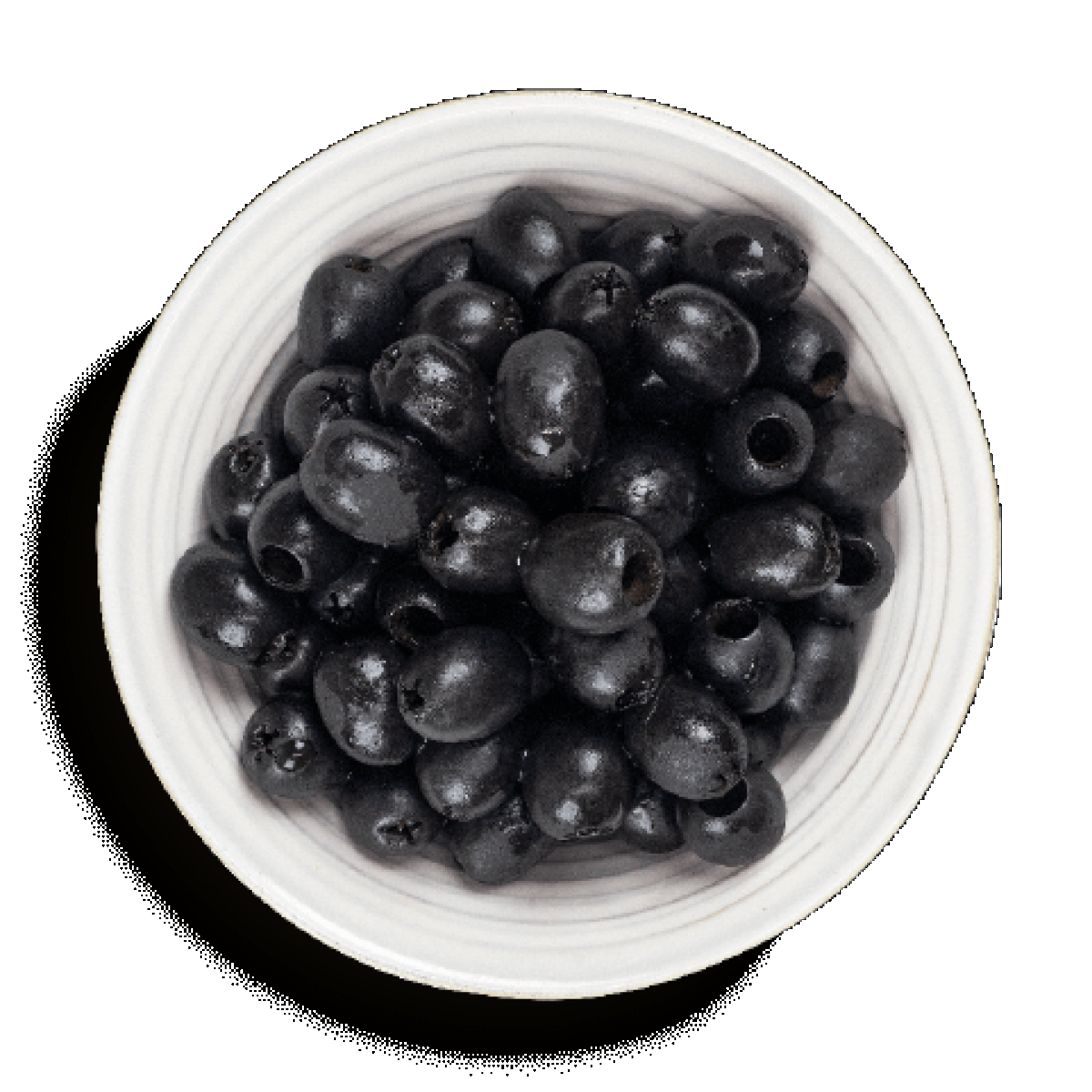Die Schwarze Olive: Ein Mediterraner Schatz voller Vorteile

Schwarze Oliven sind seit Jahrhunderten ein wesentlicher Bestandteil der mediterranen Küche und zeichnen sich durch ihren reichen Geschmack und ihre vielseitige Verwendbarkeit aus. Ob als Snack, in Gerichten integriert oder zur Ölherstellung verwendet, diese kleinen Früchte bieten eine einzigartige Kombination aus Geschmack und Nährwert. Lassen Sie uns die Welt der schwarzen Oliven erkunden und entdecken, was sie so besonders macht.
Der Weg von Grün zu Schwarz
Oliven wachsen nicht von Natur aus schwarz, sie beginnen grün und verdunkeln sich allmählich, wenn sie am Baum reifen. Diese Veränderung der Farbe beeinflusst auch den Geschmack und die Textur. Grüne Oliven werden früher geerntet, haben eine festere Konsistenz und einen bittereren Geschmack, während schwarze Oliven länger reifen dürfen und dadurch weicher werden und einen milderen, süßeren Geschmack entwickeln.
Nährstoffkraft
Schwarze Oliven sind nicht nur lecker, sie sind auch reich an Nährstoffen, die der Gesundheit zugutekommen. Sie enthalten:
- Gesunde Fette: Sie sind reich an einfach ungesättigten Fetten, die gut für das Herz sind und helfen, das schlechte Cholesterin zu senken.
- Antioxidantien: Schwarze Oliven sind eine hervorragende Quelle für Antioxidantien, insbesondere Vitamin E, das den Körper vor oxidativem Stress schützt.
- Eisen: Sie sind eine gute Quelle für Eisen, das für den Sauerstofftransport im Blut unerlässlich ist.
- Ballaststoffe: Diese kleinen Früchte sind reich an Ballaststoffen, die die Verdauung fördern und länger satt halten.
Kulinarische Verwendung
Schwarze Oliven sind in der Küche äußerst vielseitig. Hier sind einige Möglichkeiten, sie zu verwenden:
- Als Topping: Sie werden häufig auf Pizzen, in Salaten und auf Fladenbroten verwendet und verleihen jedem Bissen eine geschmackvolle Note.
- In mediterranen Gerichten: Fügen Sie sie zu mediterranen Klassikern wie griechischen Salaten, Pastagerichten oder Eintöpfen hinzu.
- Tapenade: Eine schwarze Oliven-Tapenade, gemischt mit Kapern, Knoblauch und Olivenöl, ist ein köstlicher Aufstrich für Brot oder Cracker.
- In Saucen: Fügen Sie sie Tomatensaucen oder Aufläufen hinzu, um den Umami-Geschmack zu verstärken.
- Snacks: Schwarze Oliven sind ein gesunder und befriedigender Snack, entweder pur oder zusammen mit Käse und Brot.
Olivenöl – Flüssiges Gold
Schwarze Oliven sind auch entscheidend für die Herstellung von Olivenöl, einem Eckpfeiler der mediterranen Ernährung. Extra natives Olivenöl, das aus der ersten Kaltpressung der Oliven gewonnen wird, ist wegen seines Geschmacks und seiner gesundheitlichen Vorteile sehr geschätzt. Reich an Antioxidantien und gesunden Fetten, wird Olivenöl in allem verwendet, von Dressings und Marinaden bis hin zum Braten und Backen.









